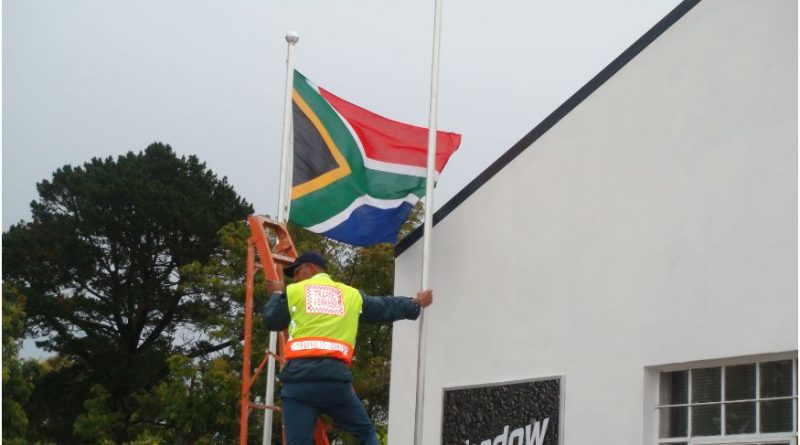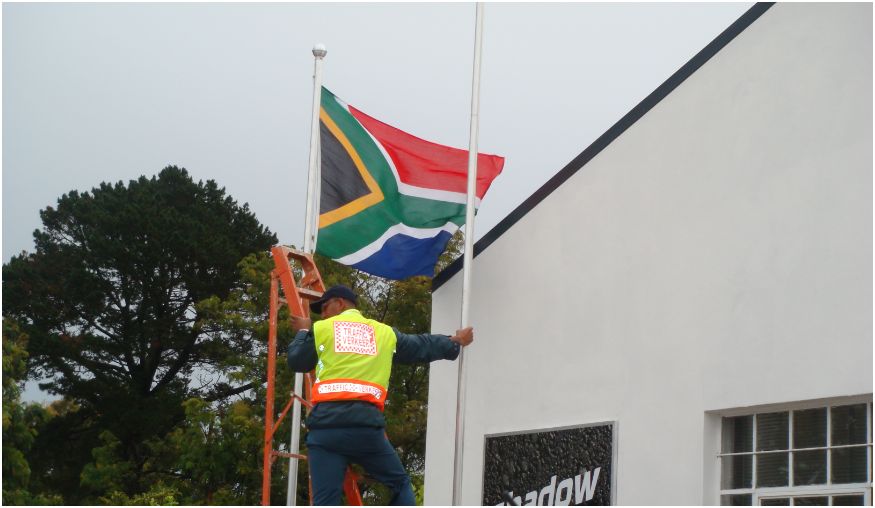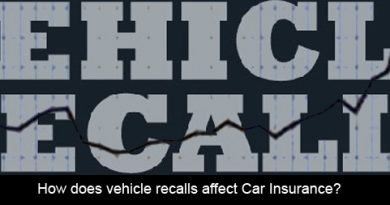Aarto concerns raised by Justice Project South Africa
What should you know about Aarto and should South Africans be concerned?
Aarto will be receiving much more publicity in the next few months as motorists attempt to gain more information about demerit points and how to protect them from penalties and fines. There has been quite a bit of debate on how this will affect traffic enforcement in South Africa and a few important concerns have been raised on our ability to enforce the proposed legislation.
We would like to share correspondence received from the Justice Project South Africa:
“There are several factors that will (and have already) come into play that will influence the outcome of this legislation:
On the public’s side:
1. At this stage, well over 99% of the law enforcement practiced by the JMPD is camera speed enforcement.
a. More than 90% of all photographs are taken from the rear, thus making it impossible to identify the driver.
b. Of those that are taken from the front, less than 1% allow one to identify the driver due to terrible clarity of “photographs”.
c. A points demerit system has to be a driver-centric system, therefore the registered owner will incur the points if they are unable to identify and nominate the driver. The question is “why do you think that camera law enforcement is so overtly prejudicial in this country?” Simple, because it is an easy way for traffic authorities to derive an obscene income and almost completely removes the burden of proof from them.
2. It has been openly stated by Alta Swanepoel, one of the creators of AARTO that this system assumes the guilt of the accused and she has said that “it is easier for the accused to prove their innocence than for the State to prove their guilt.” My response is: So what? Just who was it that says that proving an accusation should not be necessary and that an accused should prove their innocence? Where do we live – Croatia? The Bill of Rights of the Constitution of South Africa says that you have a right to be presumed innocent until proven guilty. But when it comes to traffic law, this does not apply. Even the National Road Traffic Act has a presumption that ‘in the absence of proof to the contrary, the registered owner shall be deemed to have been the driver’ and I refer you back to point 1 in this instance.
3. There has been very little, or no public education on what AARTO is all about.
a. With the exception of a few interviews on radio and TV, the RTMC has not embarked on an education drive for members of the public.
b. The stated “launch of their public education drive” at OR Tambo international airport in November 2010 has resulted in little other than an extremely poorly compiled “AARTO made easy” PDF document which contains so many inaccuracies that it is quite evident that its authors do not understand AARTO themselves.
c. NO other public education has been embarked on.
d. I have interacted with traffic officers and senior traffic officials who similarly do not understand a thing about AARTO. I can confidently state that if I were to engage in a public debate with any traffic chief or collection of them that you wish to elect, I would annihilate them with little or no effort. For that matter, I would do similar with people at ministerial level as well as they too know little about AARTO. Perhaps the time has come for just that to happen but I have my doubts whether any of them would accept such an invitation as they are not about to embarrass themselves in public. Director Gerneke of the JMPD already proved this when he stormed out of Ignition TV last year, just prior to my arrival at a debate that was to be screened.
4. The 50% “discount” is designed to encourage motorists to pay quickly but most of them do not realise that the very second you do so, you will incur the accompanying demerit points.
a. This “trap” has been set and is already paying handsome dividends.
b. When the points demerit system comes into play, people will lose their licences before they can say “Administrative”, let alone “Administrative Adjudication of Road Traffic Offences.”
c. This is more especially true in light of the fact that many people receive scores of AARTO 03 infringement notices in the post, more than a month after the fact and are therefore oblivious of the fact they were in fact speeding at the time. In many instances that I have seen, this can be tantamount to them losing their driving licences for years, by the time they even become aware of the fact that they were in the wrong – which I can also tell you from experience, they mostly were, but in many instances, they were not and the traffic authority has engaged in a dishonest practice to gather as much revenue as possible.
d. Specific cases in point are the N1 N & S at “Diepkloof interchange” where the JMPD set up traps in a 120km/h zone and trapped people for exceeding a speed limit of 80km/h which applied at the actual site when they had set up at Rand Show Road Bridge and that of South Road Sandton, where they removed the 80km/h signs and replaced them with 60km/h signs and trapped thousands of people.
e. It is these specific instances that are now part of a criminal investigation into fraud on the part of the JMPD that has been instituted by me laying criminal charges against the JMPD’s top management, after exhaustive investigation and having previously laying complaints with the SAPS and Director of Public Prosecutions which amounted to nothing.
Ref: http://www.looklocal.co.za/looklocal/content/en/randburg/randburg-news-crime?oid=3535502&sn=Detail&pid=217566&JMPD-face-allegations-of-fixed-speeding-cameras-being-illegally-moved. The journalist was materially correct in most of this, except by saying these were “fixed” speed cameras where in fact they were mobile ones.
f. This case is now being actively pursued and “taken very seriously by the SAPS” and the only thing that will put an end to this docket will be the NPA refusing to prosecute. If they do so, they will have to explain why, given that the evidence is irrefutable.
g. More criminal charges will follow in due course so watch this space.
5. The fact that the RTMC is entitled by the legislation to blacklist a fine payment defaulter with credit agencies is going to have a massive impact on the creditworthiness of those who get blacklisted. That is all well and good, but somewhere along the line someone seems to have completely forgotten that these are fines, not debts which are wilfully incurred and involve contracts to which one can and must agree.
6. The prejudices heaped on operators (transport companies etc.) are pretty scary and the grounding of an entire fleet is a very real prospect. This could have a devastating effect on the economy, the transport sector and the public transport sector. I am not for one second saying that dangerous or unroadworthy vehicles should be allowed to continue operating, but I am saying that these should be targeted – instead of grounding entire fleets.
7. There is no public transport system in South Africa to speak of, and minibus taxis, the Gautrain etc. simply do not qualify as they are not part of an overall safe and effective public transport system.
8. Suspending someone’s driving licence will not stop them from driving because they will have no other safe way to get to and from work, meetings, etc.
a. For as long as physical enforcement is so rarely practiced in South Africa, this will not deter those whose licences have been suspended from driving because the chances of them being caught will be remote.
b. The only thing that may have an influence on this will be the roadblocks that are set up by traffic authorities and if one is smart, these can be avoided. In fact, if one expects the likes of the “PigSpotter” network to not report on these when the points demerit system comes into play, then I am afraid you are living in a dream world. If anything, it will cause a massive surge in Twitter networks like that of PigSpotter reporting the exact location of all of these roadblocks. Once again, true law enforcement will suffer as drunk drivers will be able to avoid them too.
On law enforcement’s side
The Department of Transport and the various traffic authorities strategy of “declaring war” on motorists is a very foolish move, given the fact that there are currently 8.8million licenced drivers and probably in the order of 50,000 (estimated) traffic officers in the country.
1. The frequency and quantum of bribes being demanded will grow exponentially as it has already ahead of the points coming into play. Remember that anyone faced with the very real prospect of a hefty fine and having their licence suspended will be way more inclined to pay a bribe, rather than face that prospect.
a. Making representation legally, going to court etc. is way more time consuming and could potentially be way more costly than paying even the highest amounts of bribe money.
b. When one faces the fact that a lawyer could easily set you back R10,000 to represent you in court, given all of the postponements that are typical of traffic cases, a 50% discount of a “spot fine” or bribe will be way more attractive to many.
c. Therefore, when telephone surveys conducted by market research companies reveal that only 16% of people admit to paying bribes, I find this very hard to believe. We conducted a similar survey but obviously asked different questions in 2009 and the results we got were way more convincing. When faced with the prospect of having their licence suspended and/or facing arrest and jail time, over 90% said they would seriously consider paying a bribe. Remember – it is not what you ask, but how you ask it that counts.
d. Corruption is one of the biggest and most difficult problems to address in law enforcement in general and AARTO worsens that as it provides increased opportunities and motivators to further widen the attractiveness to engage in it.
2. The RTMC and the IT systems they employ are both incapable of both, running AARTO and monitoring its compliance by traffic authorities.
a. There are currently only two participants in AARTO and already it has come to light that the application of the legislation has not been adhered to by the JMPD.
b. The TMPD have, by and large stuck to the Act and regulations, mainly because the RTMC has processed all of their fines for them, but the JMPD have done anything but.
i. The JMPD have not progressed the vast majority of infringement notices beyond the first issue of an AARTO 03.
ii. We estimate that well under a quarter percent of all JMPD issued infringement notices have even progressed to the courtesy letter stage.
iii. The JMPD has issued no enforcement orders or warrants of execution whilst the TMPD has progressed most of their “fines” to the subsequent stages under AARTO.
iv. We are told that not ONE warrant of execution has actually been executed because no Sheriffs have been appointed by the RTMC.
c. The JMPD have since June 2010 been sending out all of their AARTO 03 infringement notices via standard permit mail instead of the registered mail as is required by the Act.
i. Despite this being declared as UNLAWFUL by the RTIA, the practice has not stopped to date.
ii. The supposed urging of the RTMC on the JMPD to cease with this activity has resulted in nothing more than the JMPD continuing to do what they like.
iii. By this action continuing unabated, it has been proved beyond any doubt that both the RTMC and RTIA are completely toothless in ensuring that issuing authorities comply with legislation.
d. Since April 2010, the JMPD has been tripling fine values to juristic persons whilst the TMPD have not been doing similar.
i. Remember that the TMPD’s fines are processed by the RTMC and therefore, their seeking legal opinion as to the validity of doing so which came back from the Chief State Law Advisor as being okay seems to have been discarded by the RTMC since the TMPD is still not doing so.
ii. The JMPD have also been fining holders of foreign driving licences 3 times the penalty value and whilst there is provision in the Act and regulations for a foreigner to not be entitled to the 50% discount there is no provision whatsoever for them to have their fines tripled.
iii. The JMPD have once again thumbed their noses at us and the RTMC and us and said they will continue to do this.
iv. Once again, the RTMC has proven ineffective in controlling them and what they do, however unlawful it may be.
e. Now, if the RTMC and RTIA are having such difficulty in controlling only two participants in AARTO, what on earth makes anyone think that they will be able to do so with a further 229 municipalities in South Africa, plus all of the provincial authorities and the SAPS? The fact is that AARTO is going to end up being a free for all and the only people that are going to suffer and be brought to book are going to be the driving licence holders and fleet operators.
i. Please note that we have effectively been forced into a situation where we, as a non-funded civil organisation, are going to have to bring High Court litigation at our expense in order to ensure that the Act and regulations are applied correctly.
ii. Forgive me for asking but how does anyone think that this is in anyway fair when the custodians of AARTO, the RTMC and the RTIA should have simply have been able to instruct and enforce that the Act and regulations be complied with? If they were not prepared to do it then why is it that the Department of Transport has also refused to get involved?
iii. I am sickened by the lack of response from them and the Department of Transport and the fact that none of their structures seem to have the cajones to take on the almighty JMPD whilst we are expected to.
iv. We have interacted with all of them and have received no joy whatsoever on this matter since July 2010, despite all sorts of promises from the RTIA and RTMC that they were “dealing with the matter”.
v. When, and not “if” this matter is ruled upon and all of the fines that the JMPD have issued since June 2010 are declared as null and void by a court, over and above the RTIA having already done so, every single offender will be let off the hook, regardless of whether they committed the alleged infringement or not. Why? Because the JMPD decided that they can do what they like and that they do not have to comply with the same legislation that they are entrusted to enforce and the RTIA and RTMC are clearly powerless to ensure that they do so. What a sad day for law enforcement that is going to be – not so?
3. To our knowledge, and the last time we confirmed this was in December 2010, not one criminal summons for serious speed offences caught on camera has been issued or served as is very clearly required by the Act.
a. This means that only minor infringements for which fine monies can be collected have been pursued.
b. People doing over 40km/h above the speed limit have simply been told that they will be summonsed at some time in the future and that has been that.
c. Those who query this have been miraculously given an “admission of guilt fine” to be paid by the JMPD.
d. This openly and unabashedly shows that law enforcement authorities are in no way interested in tackling serious offences but are chasing revenue and nothing else.
Most important of all, we MUST ALL STOP comparing South Africa to Australia, on whose points-demerit system AARTO is very loosely based. The ONLY similarity between Australia and South Africa is that we are both in the southern hemisphere and that is where the similarities begin and end!
You asked how these problems can be addressed and the answer to your question is not as simple as it may appear. I will however do my best.
1. The first thing that is going to have to change is the legislation itself.
a. AARTO will not work because it is too complicated (as is any good con) and it seems that those who are applying it are the most confused of all about it.
b. Traffic law itself (the National Road Traffic Act) also needs to be reviewed and its unconstitutional provisions removed.
c. The scheduled fines and demerit points under AARTO needs to be reviewed and brought in line with the seriousness of the infringement or offence to which it applies.
i. For example, proceeding through a red traffic light carries only a fine of R500 and 1 demerit point whilst some parking offences carry a fine of R1000 and 3 points.
ii. How can it possibly be deemed to be more dangerous to simply abandon a vehicle which is standing still than to drive through a red traffic light where moving vehicles (some at relatively high speed) will most frequently be coming at you sideways?
iii. The authors of this schedule have seemingly not had to slam on brakes for a reckless driver shooting through a red traffic light, now have they?
2. The next thing that will have to happen is that professional and extremely well trained law enforcers will have to be put into play. The current status quo of traffic law enforcers of all levels is by and large (and yes, I do mean generally) extremely poor. That is why they can only concentrate on one traffic offence at a time and if they happen to be enforcing not carrying a warning triangle at the time and you happen to have four bald tyres, you will not be taken to task if you have a warning triangle with you.
3. Tackling corruption in an effective and decisive manner has got to be part of the mix and this can only be done by:
a. Paying the kind of salaries that deter the necessity for this;
b. Introducing measures – like frequent polygraph tests, entrapment exercises etc. – to minimise the risk and
c. Locking up offenders from both sides for a long time when they are caught and convicted. Simply firing them so they go elsewhere and do the same thing is a joke, but that is exactly what happens now.
4. Moving violations must be focused on and the offender must be stopped at the time of the infringement or offence. Cameras should be banned for any other purpose than strengthening the evidence of the alleged offence or infringement. This is by and large how it is in Australia, which is so often quoted by those who think AARTO is so fantastic.
5. The actual drivers responsible must be targeted properly and corrective, instead of solely punitive methodologies must be employed.
a. Punishing people, no matter what you are doing it for, has very limited effect and does not address the route problem where correction occurs. That is true of the entire South African criminal justice system, but more especially true of traffic law.
b. Suspending a driver’s driving licence, after taking what is effectively a minimum of R6,500 from them (or R3,250 if they cough up within 32 days in each instance) is not going to cure the problem or educate the driver, it is just going to ensure that lots of money is made before the licence gets suspended.
c. The so-called rewarding of good drivers by reducing their points on their licences by a quantum of one point for every three months that they remain infringement free is utter rubbish. The points demerit system – anywhere in the world – is not a rewards system it is a demerits system, which in itself is a punitive measure. Good drivers get nothing whilst delinquent drivers get punished and that is that.
6. Truly corrective measures must be brought into play and things like “traffic schools”, effective community service (like the JPSA Eyewitness Programme) etc. must become part of the overall solution. Beating the living daylights out of offenders without showing them what the effective consequences of their behaviour to others can be is a waste of time and effort and only builds resentment, instead of changing behaviours.
7. If you really want to see people jump, then this is what will work in South Africa:
a. The first time that a person commits a moving violation, impound their vehicle for a week. Charge them storage too if you are so dead bent on making money out of law enforcement.
b. The second time they do it, impound their vehicle for a month.
c. The third time they do it, confiscate the vehicle for good and either sell it off or return it to the bank and blacklist that person so they cannot get credit to buy a new one.
i. I am often asked “Where will one put all the vehicles?” and my answer is “Just what vehicles do you think we will be talking about? Just how many people do you know who would want to or let this happen to them?”
ii. This will stop people from driving, not make them avoid roadblocks.
iii. If this was the penalty, I guarantee you that people would soon begin to drive like a bunch of grannies, but – and here is the very salient factor – the municipalities, their traffic forces and private businesses like the RTMC, TMT Services, Syntell, TCS and others would soon go bankrupt.
iv. Let’s just remember that South Africa is not the rest of the world and so, we have to come up with solutions that work for South Africa – not those that work in countries where people have been exposed to real law enforcement for eons now whilst we have been exposed to corrupt, illiterate attempts to enforce the law.
v. But let’s always be mindful that reducing road carnage may not in fact be the motivation behind AARTO or anyone involved in it. If it, or any hybrid of it were to actually achieve this then another private business entity of the Department of Transport, the RAF (Road Accident Fund) would not be able to justify the huge funding it derives from levies (or taxes) on fuel and would therefore not be able to pay the huge salaries and bonuses that it pays to its upper echelons.
1. This would also mean that the companies involved in providing equipment and services to traffic authorities would see themselves in a considerably less profitable situation and that too simply won’t do now will it?
2. Even SARS would be affected since it would not gain nearly as much VAT revenue from the resultant claims of crashes, whether someone dies or not.
3. I put it to you that road deaths in South Africa are viewed as a huge opportunity to make obscene amounts of money and nothing more. In other words, “traffic enforcement” in its current form is nothing more than South Africa’s equivalent of “blood diamonds”.
Lastly let’s just get everything in perspective here please. I and JPSA are not opposed to AARTO as it may have been originally intended, nor are we in any way opposed to legitimate law enforcement. But we are opposed to the greatly flawed thinking behind it and the huge abuse that has resulted from it. We are also greatly opposed to the significant confusion that has arisen from the so-called “pilot phase” which has seen different administrative measures being applied to the same traffic law in the same country, thereby causing mass confusion. Everyone must understand that AARTO is not “new traffic law” as it is so often referred to – it is merely a replacement administrative tool for existing traffic law and they simply do not understand this because they are being misled by those who are entrusted with its rollout.
I have attached the RTMC’s materially flawed and inaccurate attempt at the education of motorists on AARTO to this email so you can see just what I am talking about when I say that even they do not appear to understand AARTO. This has been sent to them some time ago, but to my knowledge, they have not corrected any of it as can be seen at http://www.aa.co.za/content/1252/aarto-act/&Reference_ID=1957899. Very sad indeed, don’t you think?
I am no clairvoyant or willy-nilly naysayer, but am merely someone with a sense of reasoning who has observed what is happening and refused to bury my head in the sand and pretend that things will get better.
Those at whom that slide was aimed have done the exact opposite and are still pretending that AARTO will have the desired effect on stemming the tide of road deaths in this country. It is my concerted and educated opinion that it will do anything but that and that the arrogance of those who say it will is merely going to delay this inevitable conclusion from actually being reached.
My sincere condolences go out to all of those who will have to die on our roads and their families who will have to mourn them to prove me right, given that I can have limited real influence on those who simply refuse to listen.
Best Regards,
Howard Dembovsky
National Chairman – Justice Project South Africa
Also view:
- Aarto Made Easy
- Corruption Traffic Enforcement and Road Safety
- Aarto Presentation
- Aarto in a Nutshell





